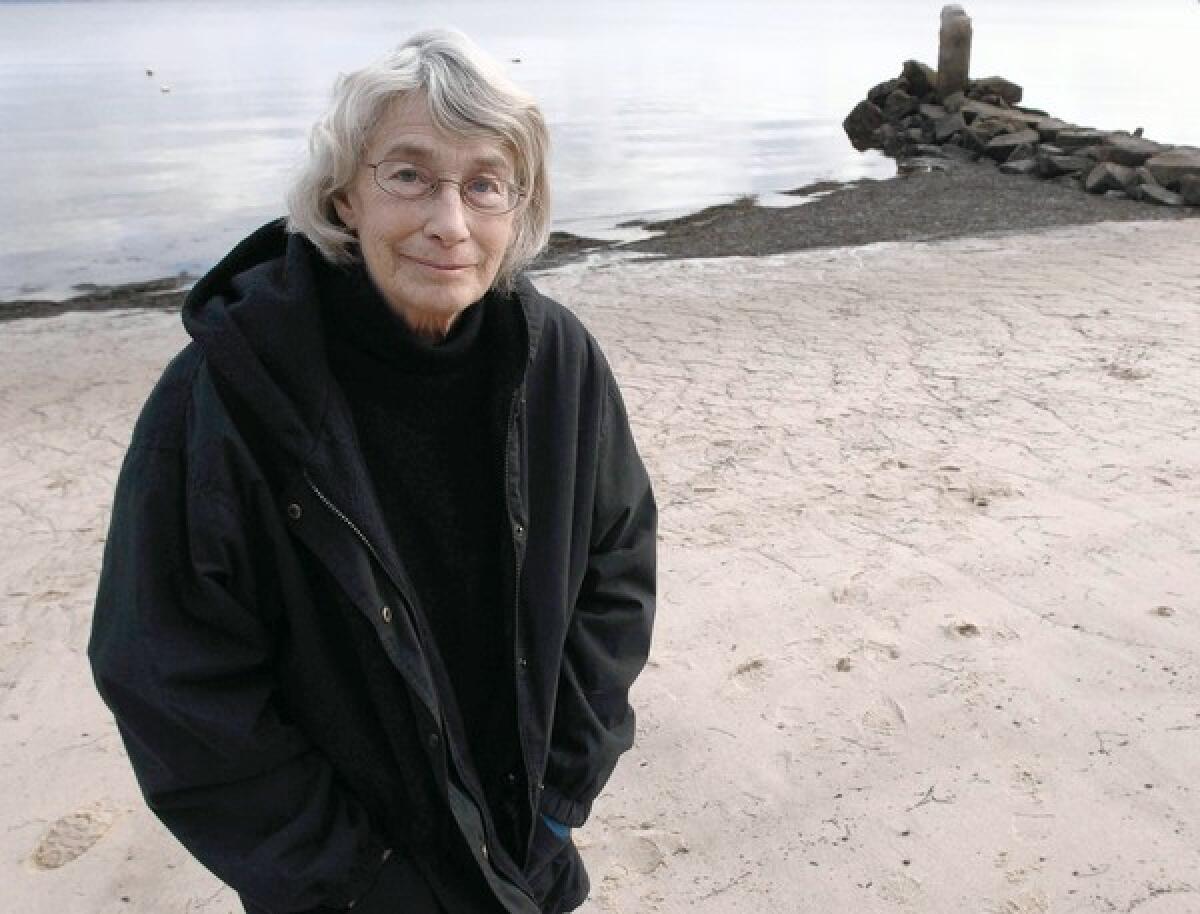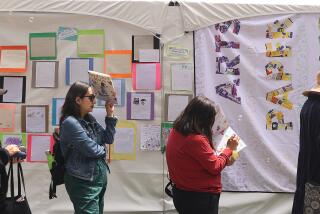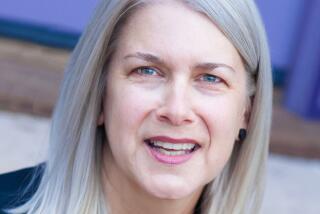Book review: ‘Swans’ by Mary Oliver

Swan
Poems and Prose Poems
Mary Oliver
Beacon Press: 96 pp., $23
“What can I say that I have not said before?” the poet Mary Oliver wonders on page 1 of this, her 20th collection. “So I’ll say it again./The leaf has a song in it.” She is a little weary, at 75. She is still in mourning after the death of her beloved, photographer Molly Cook. And she is not melting fast enough into the ease of animals. Try as she might to be alone, to be “motionless as an uprise of weeds, until the foxes run by unconcerned,” she is called back into the world.
Saying that Oliver is impatient is like accusing Basho or Emily Dickinson (easier to imagine) of raw irritation. We imagine them finished, perfected, creating beauty out of beauty: already there.
Sometimes they let us see them mid-thought, imperfect; and “Swan” is such a collection. The gait is uneven, there is much talk of fast and slow: kingfishers, fish, foxes, hummingbirds and mountains, “the typewriter humming, ready to go.” Now she relies on beauty to quicken her pulse and still her heart: “Two poached eggs. The buttered toast. The ream of brand-new paper just opened,/white as a block of snow.” There is work to be done. No feeling sorry for yourself. Leave the self behind. She is still a little hard on herself. “Who am I ever/to imagine I could know/such a marvelous business?”
This is also the voice of Christian humility. Oliver finds her place in creation, with the dust and the spiders, “in the muddy shallows.” “Something in myself or maybe/from somewhere other said: not too/many words, please.”
Oliver’s poetry gets more and more Christian as the years pass, or maybe she herself has become more aware of the beautiful forms Christianity offers: the sermons, the prayers and the songs. “Okay,” she writes, “I confess to wanting to make a literature/of praise.” This word “okay” appears throughout the collection. It is a word that accompanies a sigh, as in, OK, this is me, this is what you get — just me.
She insists on her language of beauty and praise: “Though I have been scorned for it,/let me never be afraid to use the word beautiful.” She insists on reading emotions in the natural world: “On the beach, at dawn:/four small stones clearly/hugging each other.” She sees a human reflection in nature, insists, quietly willful, on the earth as her family, the trees her “tall, kind sisters.” She struggles more in this collection with the opposing forces of the spirit and the body: She feels pulled in both directions. “The spirit says:/What gorgeous clouds./The body says: Good,/the crops need rain.” And later in this poem, called “The Living Together”: “The spirit says: Body,/how can we live together?/The body says: Bricks and mortar/and a back door.”
Oliver also gives advice — yes she does. Perhaps that explains our utter dependence on her. Readers who never tough the stuff buy Oliver’s poetry. “If you suddenly and unexpectedly feel joy,” she tells us, free of charge, “don’t hesitate. Give in to it.” Sometimes this takes the form of a challenge: “And have you too finally figured out what beauty is for?/And have you changed your life?”
Throughout, Oliver mentions her dog Percy, who died in 2009. In “Percy Wakes Me (Fourteen)” she describes a moment between the two of them (there were many) when Percy expected to be chastised and was, instead, praised and scratched: “He is/wild with the okayness of it.” Forgiveness. “This is a poem about Percy./This is a poem about more than Percy./Think about it.”
We could say to her (and rarely has a writer so steadfastly protected herself from fans): Take your time. Forgive yourself for not having quite enough of it. Forgive yourself for all the moments you did not fully appreciate, the times you forgot to be amazed. This collection presents that opportunity — to say to ourselves, under our breath or out loud in an empty room: Thank you for this and all the others. We toss her words back to her in a beautiful game of catch on the beach with Percy: “Words are too wonderful for words. The vibrant/translation of things to ideas. Hello there./My best greetings to you.”
Salter Reynolds is a writer in Los Angeles.
More to Read
The biggest entertainment stories
Get our big stories about Hollywood, film, television, music, arts, culture and more right in your inbox as soon as they publish.
You may occasionally receive promotional content from the Los Angeles Times.






